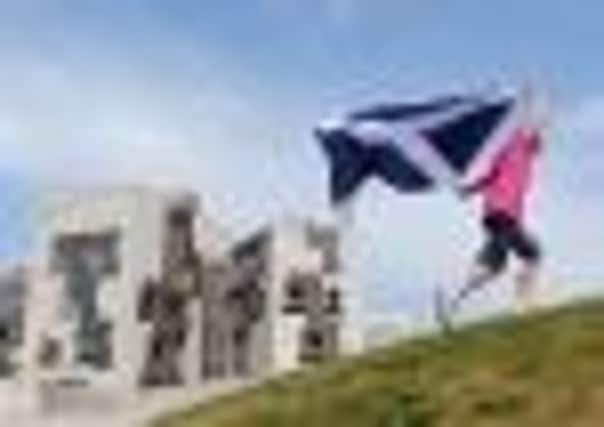Drive to give Scots expats referendum vote


The prospect of about 750,000 voters living in England, Wales and Norhern Ireland being given a say in the country’s destiny has been raised as the unionist parties attempt to seize control of the referendum poll from Alex Salmond.
The move has been made by former Labour chief whip Baroness Taylor of Bolton, who has lived most of her adult life in England but was born in Motherwell. Her proposal to dramatically increase the size of Scotland’s 3.99 million electorate has been outlined in an amendment tabled to the Scotland Bill, the UK government legislation on the constitution passing through the Lords.
Advertisement
Hide AdAdvertisement
Hide AdHer amendment has been drafted so that it would extend the voting franchise for the referendum to include those born in Scotland but now living in other parts of the UK.
Nationalists are likely to interpret Taylor’s move as an attempt to skew the result, based on the assumption that those who have settled and married in England are more likely to disapprove of independence.
The SNP itself has been accused of trying to influence the result by arguing that the vote should be extended to 16 and 17-year-olds, who tend to be more sympathetic towards independence than older voters.
The SNP government believes eligibility for the referendum ought to be based on residency in Scotland. If passed, the Taylor amendment would enable Scots who were able to present proof of their place of birth to vote, even if they were living outside Scotland.
Lord Foulkes of Cumnock, who has been in discussions with his Labour colleague, said: “Ann [Lady Taylor] wants to open this up for debate. She was born in Motherwell and has a strong connection to Scotland. She still supports Motherwell. She is as interested in Scotland as some people are who are still living here. She wants the Scottish diaspora in the UK to be included.”
Last night her proposal had attracted cross-party support from those who believe that people born in Scotland don’t become any less Scottish when they move and should be allowed to decide the future of their native land.
Tory peer and former lord advocate Lord Fraser of Carmyllie said: “For many, there is a view that if you were born in Scotland but were working in Brighton, then why the hell shouldn’t you have a vote in a referendum?”
The amendment is due to be debated in the House of Lords towards the end of January and will be considered alongside an attempt to force Salmond to hold the referendum within a 12-month deadline.
Advertisement
Hide AdAdvertisement
Hide AdBut the First Minister’s spokesman said: “It is the height of absurdity that unelected peers in the House of Lords should try to lay down the law about the democratic referendum we will have in Scotland. Labour had their chance to govern Scotland – and were comprehensively rejected in May 2011.
“The more unelected peers interfere and front up the No campaign, the worse it will get for anti-independence parties.
“The draft referendum bill, published by the Scottish Government in February 2010, follows the precedent of the 1997 devolution referendum: eligibility to vote is based on the franchise for Scottish Parliament elections. This is consistent with the internationally accepted principle that constitutional referendums should have a franchise determined by residency.”
The spokesman added: “The referendum will be held in the second half of this parliament, when the people of Scotland voted for it to happen, and when Scotland’s parliament, not Westminster, wants it to happen.”
The timing of the referendum has been a major bone of contention between Nationalists and unionists with those who want Scotland to remain in the United Kingdom arguing that the matter should be settled as soon as possible.
In an amendment of his own, Foulkes is hoping to alter the Scotland Bill to introduce a sunset clause that would force the referendum to be held within a year. The introduction of such a clause would involve legal control of the referendum being handed from London to Edinburgh under a section 30 order – a provision that allows for powers normally reserved to Westminster to be given to Holyrood.
If that were done, Westminster could insert clauses, that would place a time limit on when the referendum could be held and a guarantee that the poll would be overseen by the Electoral Commission.